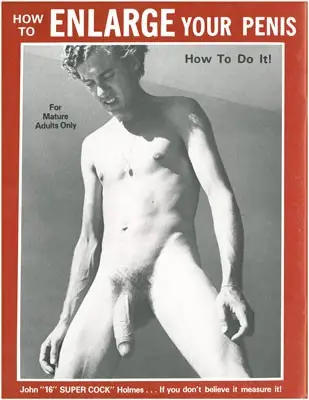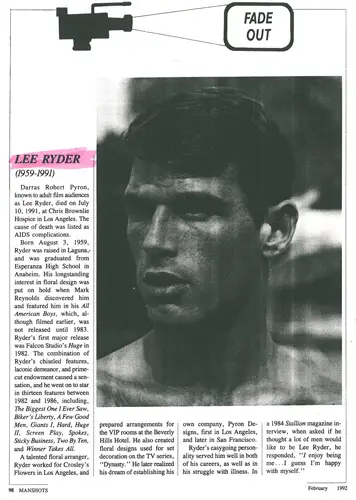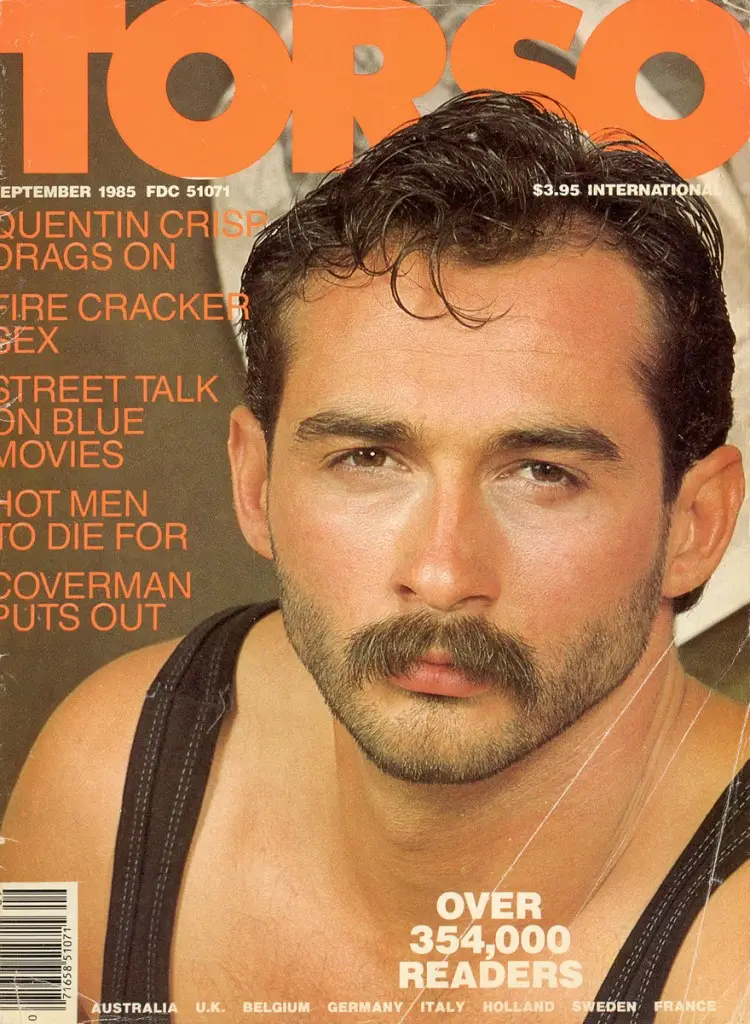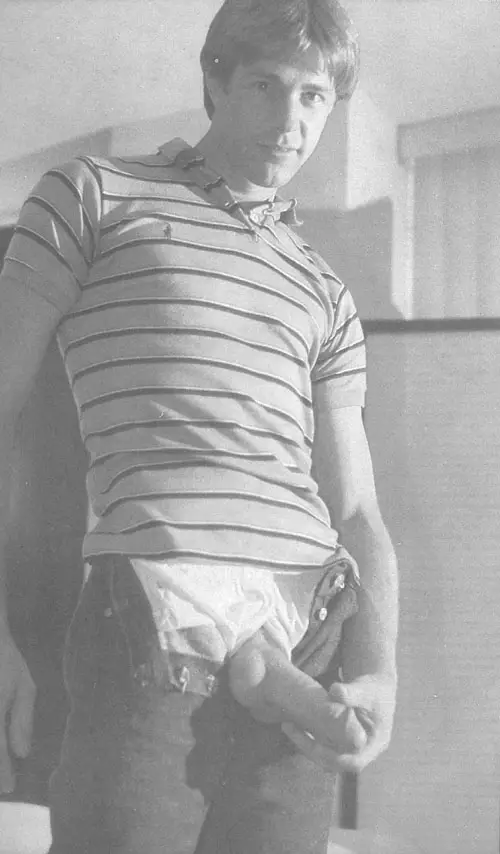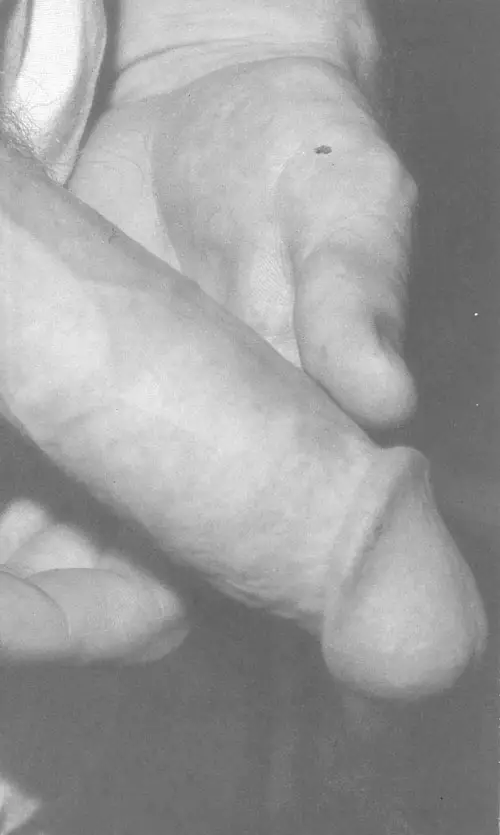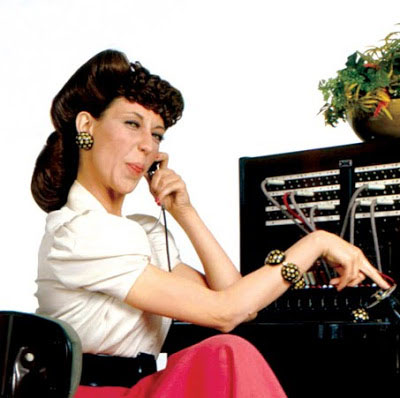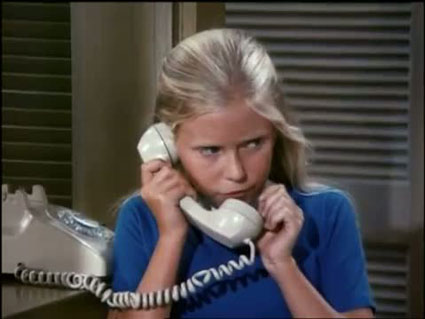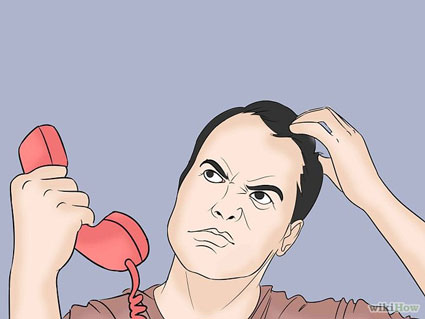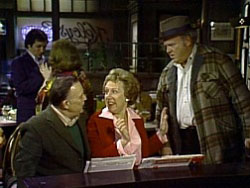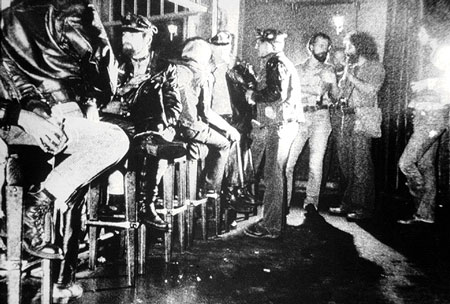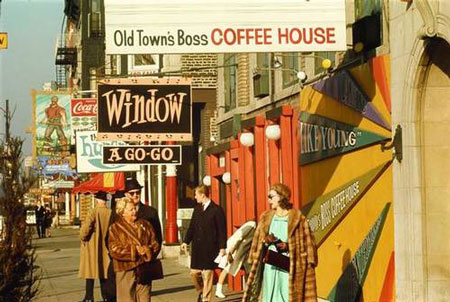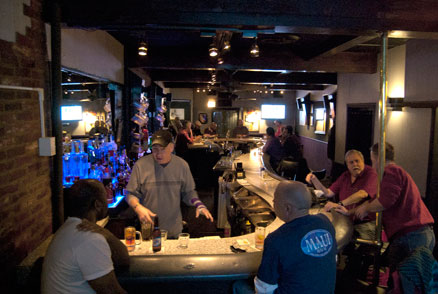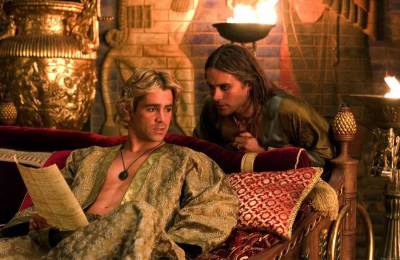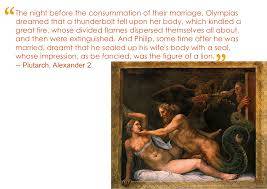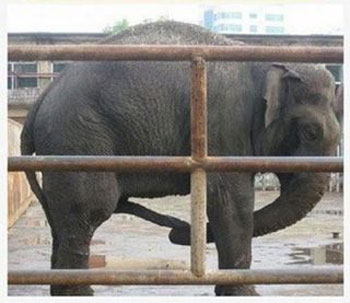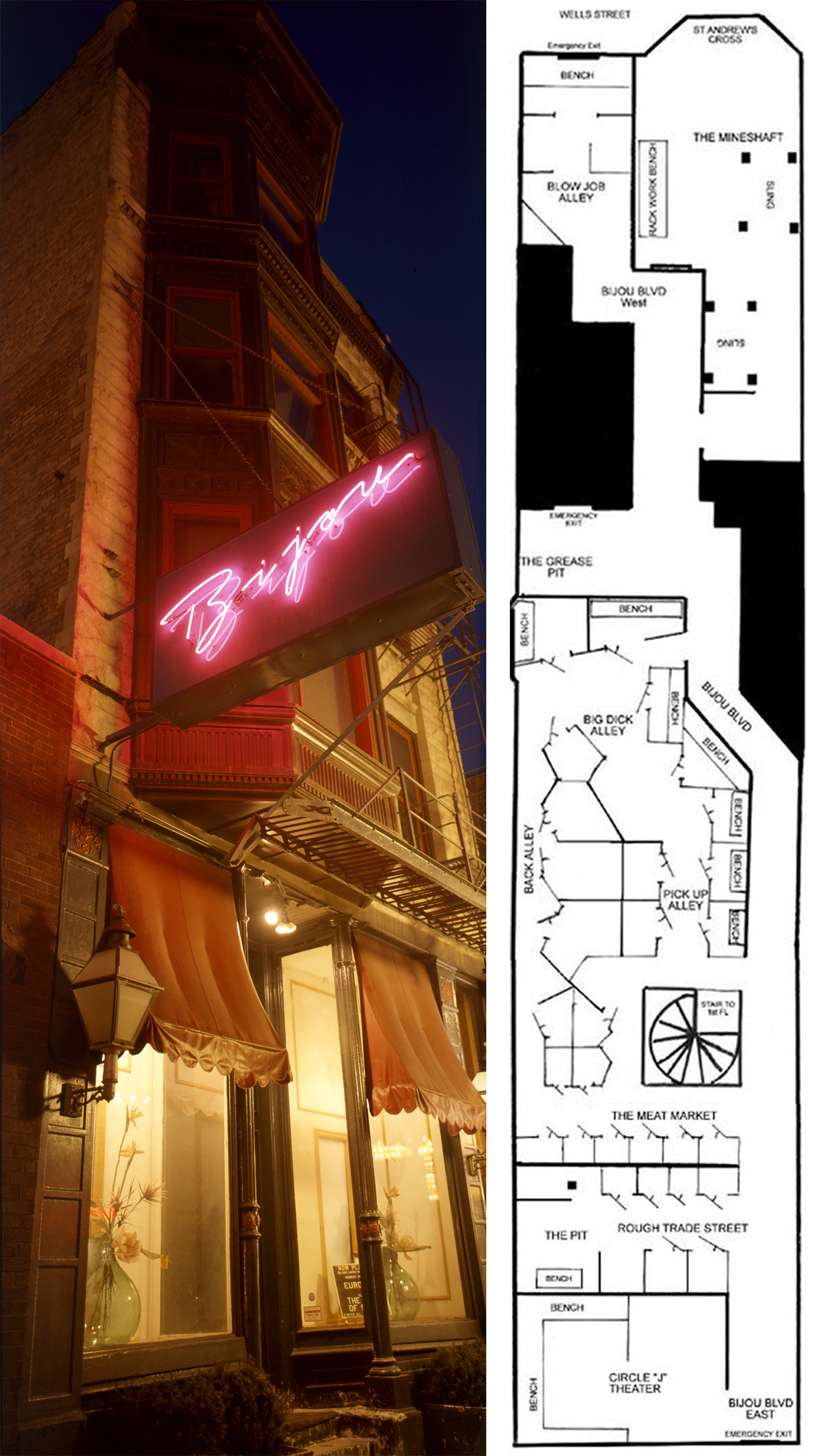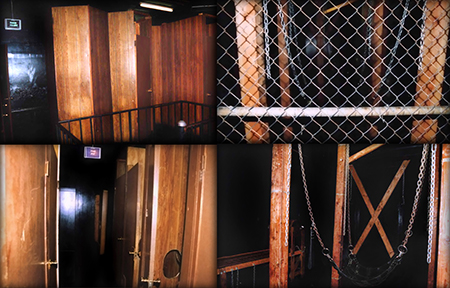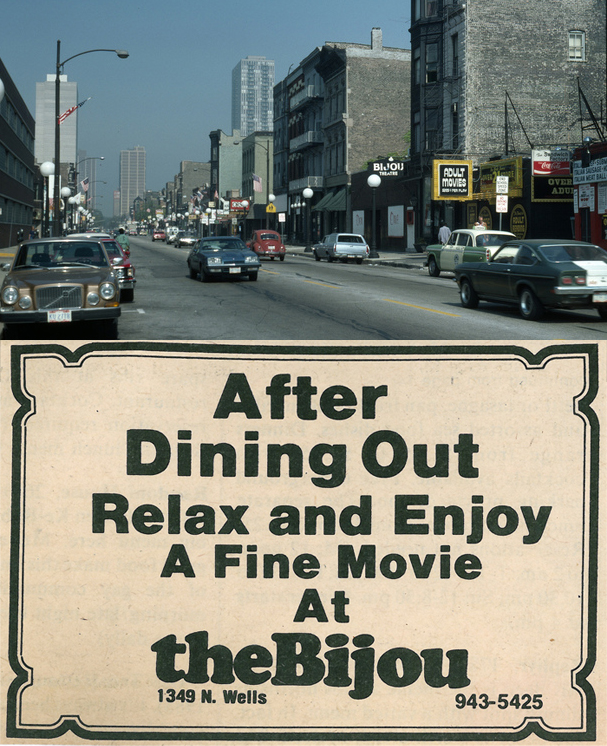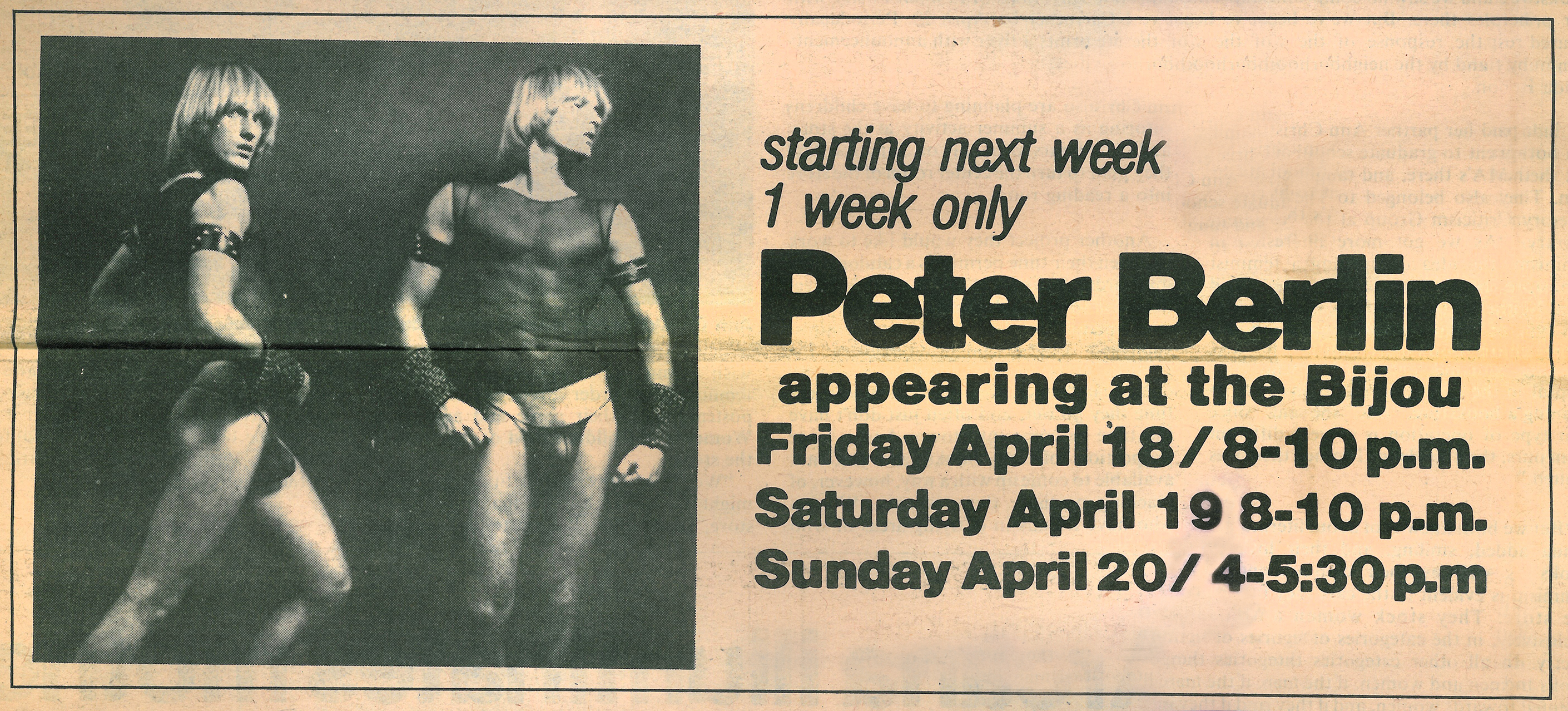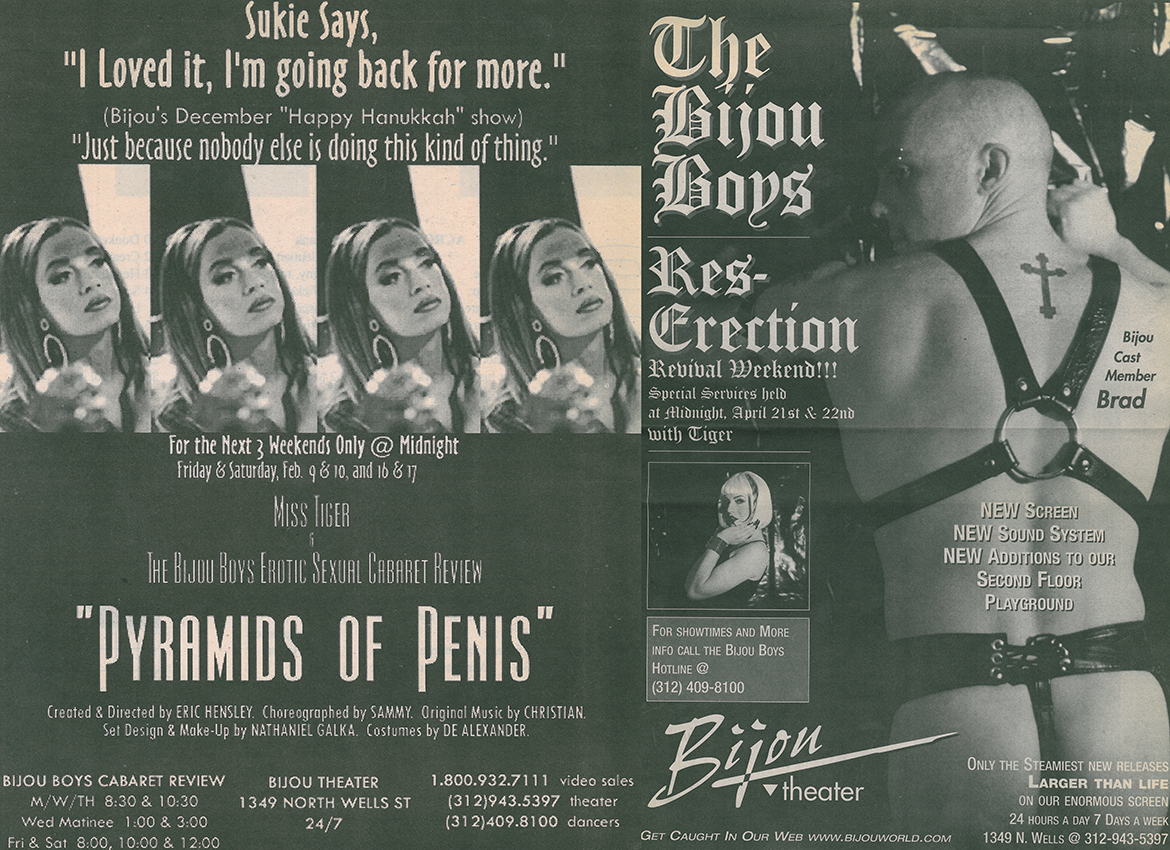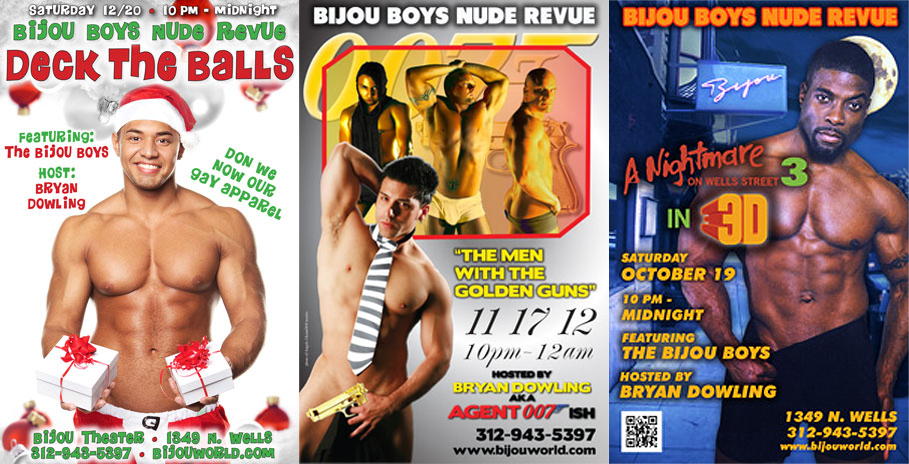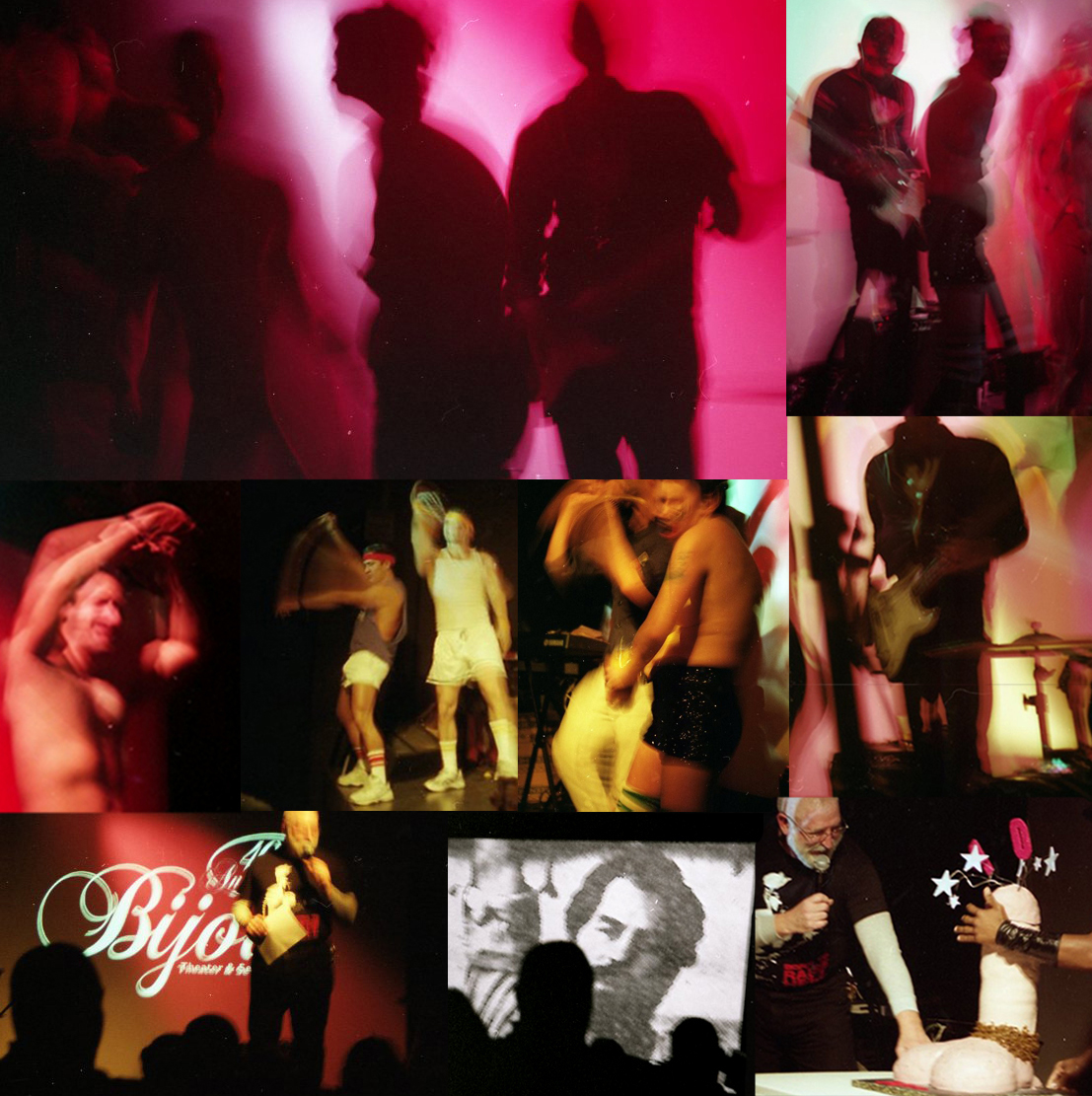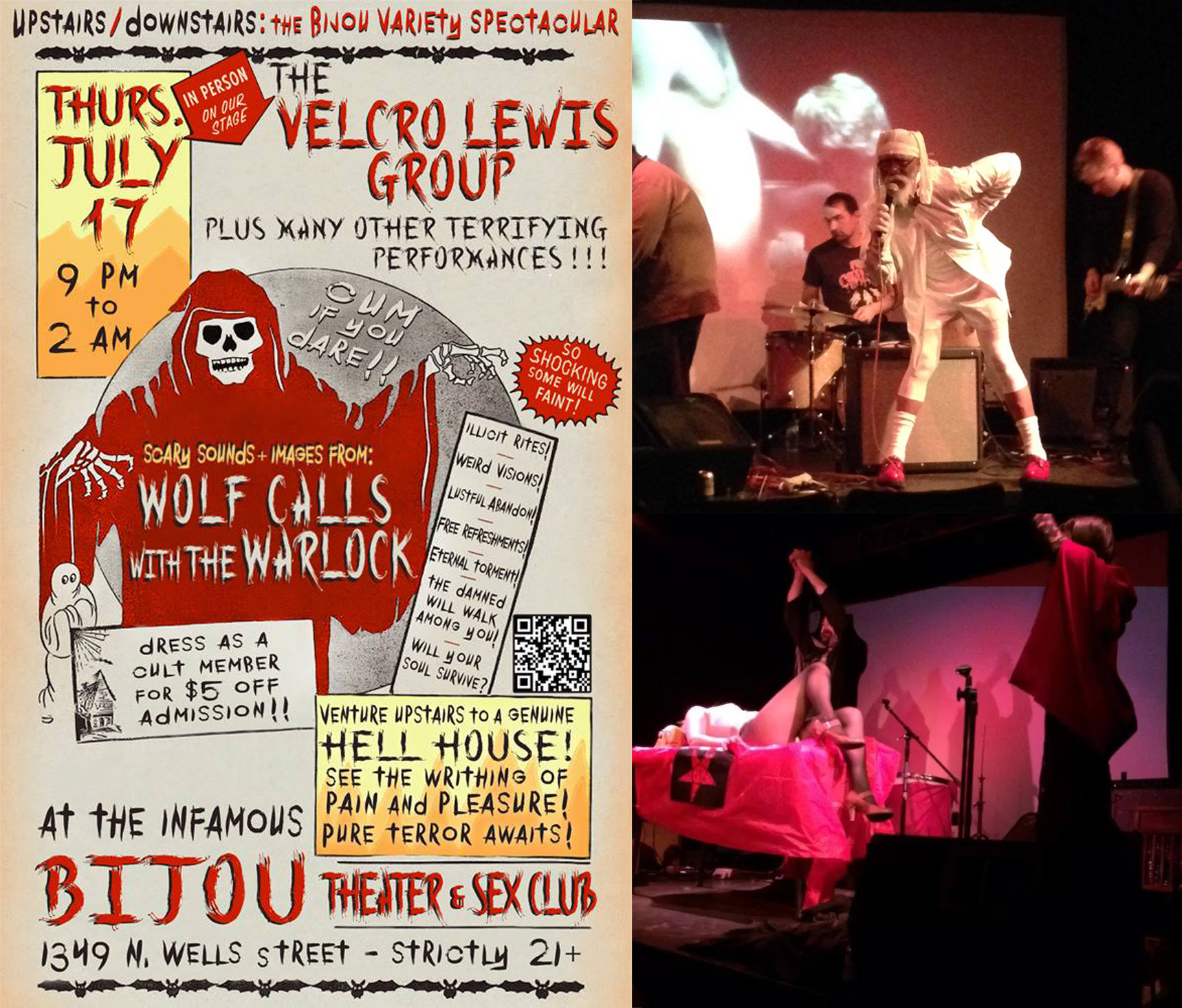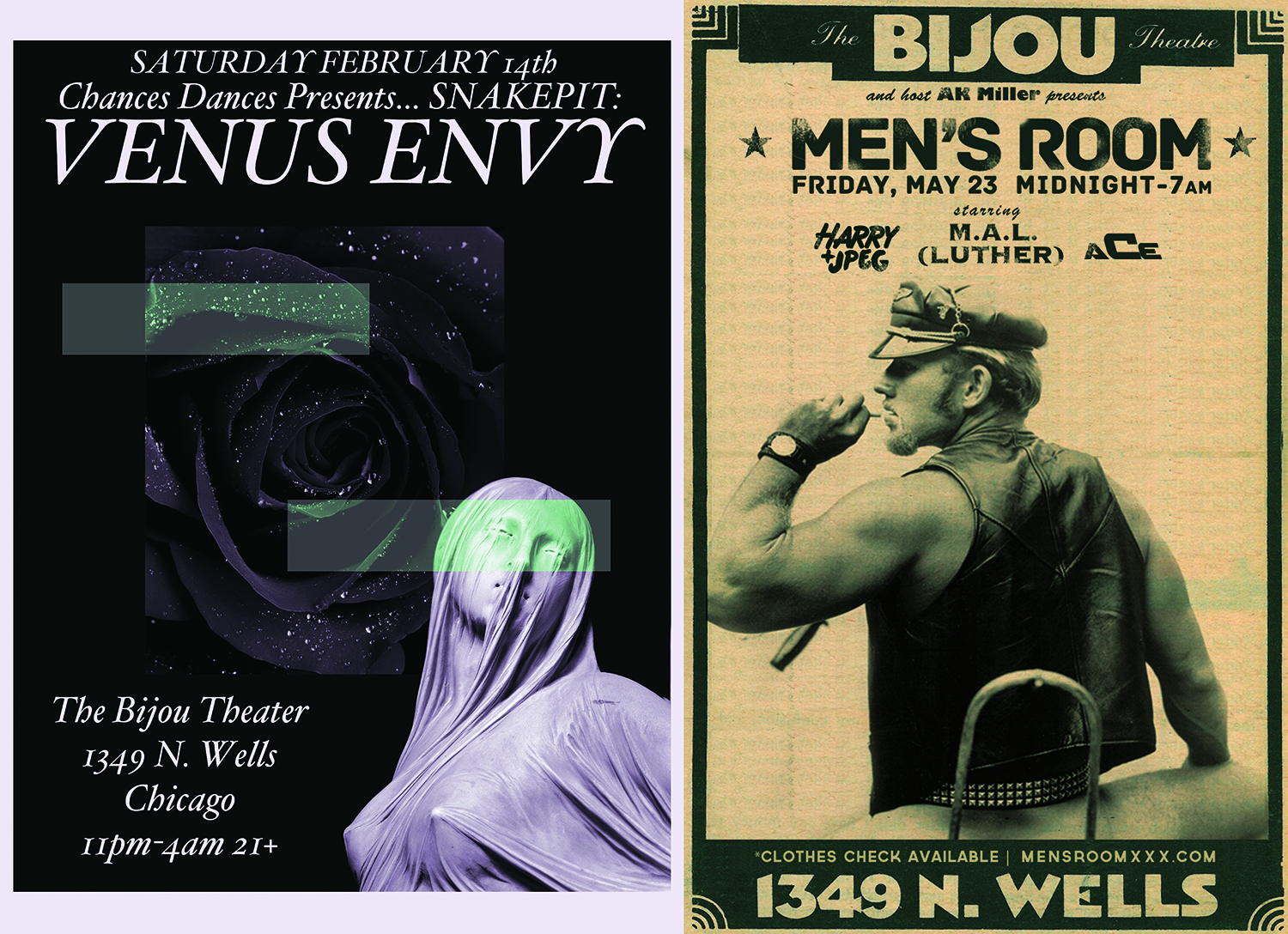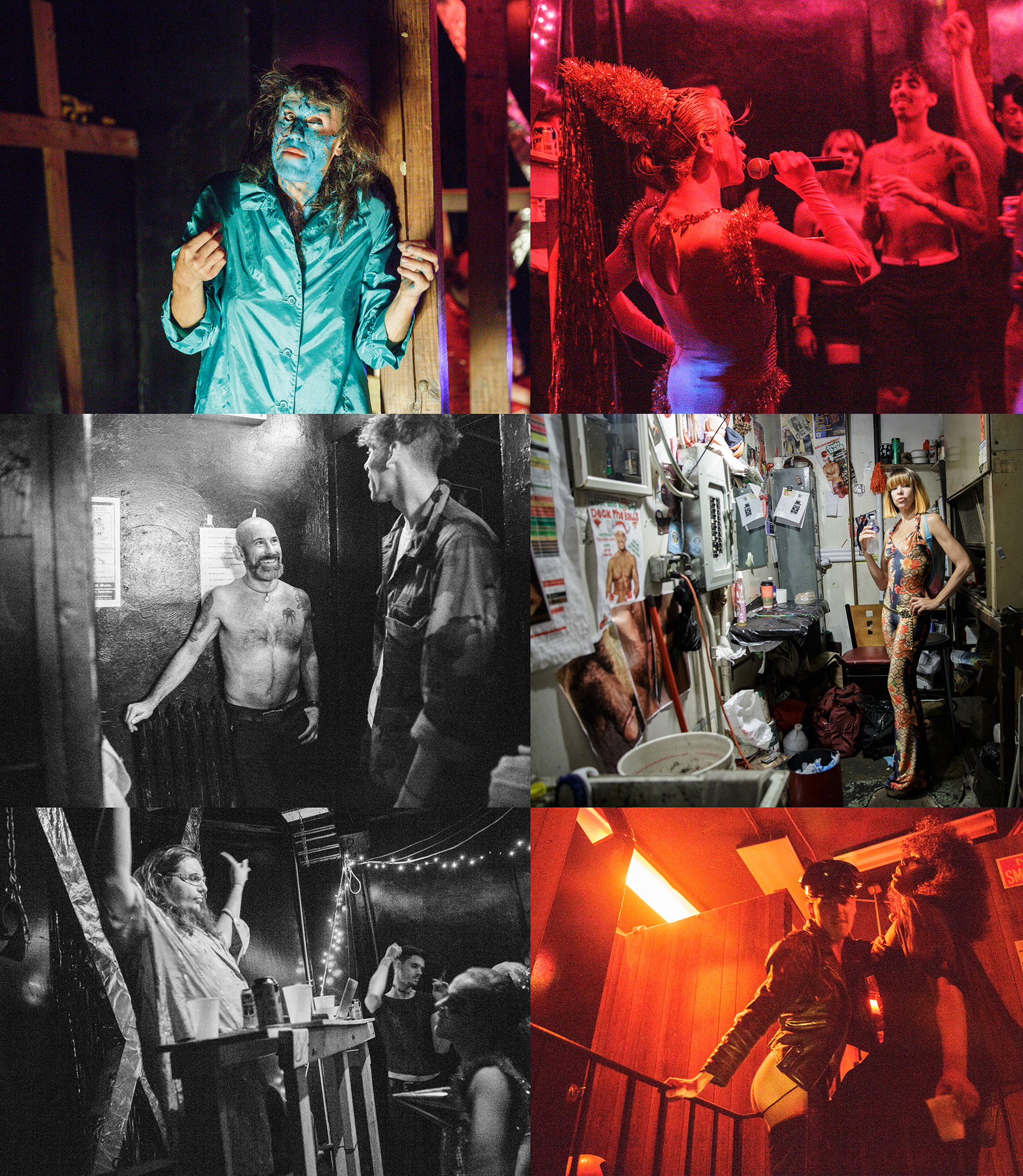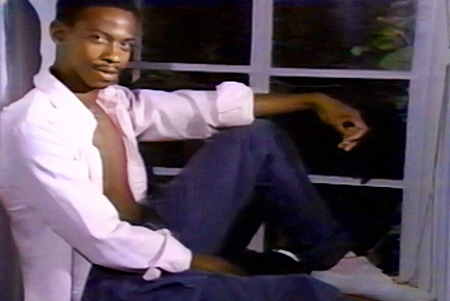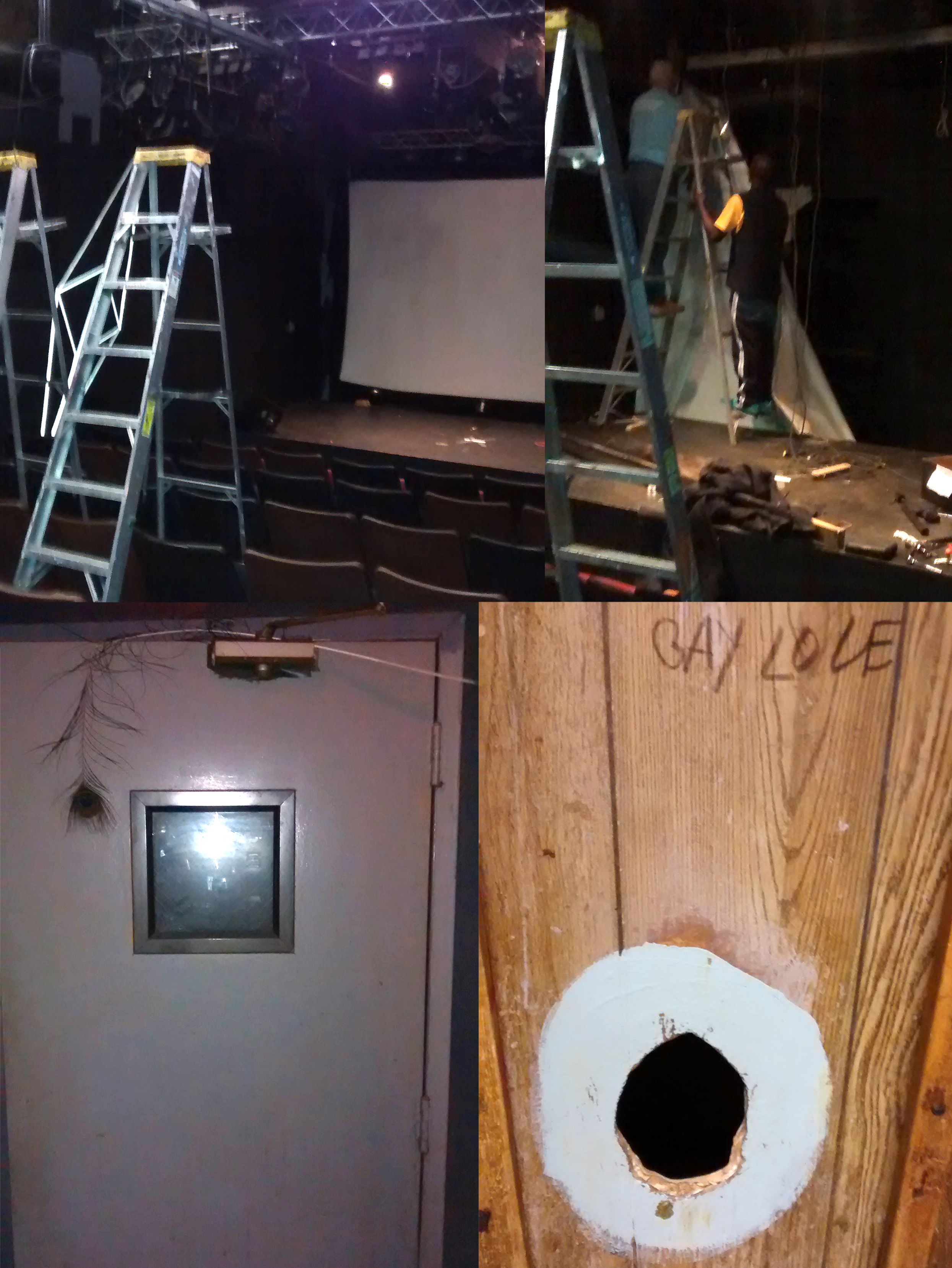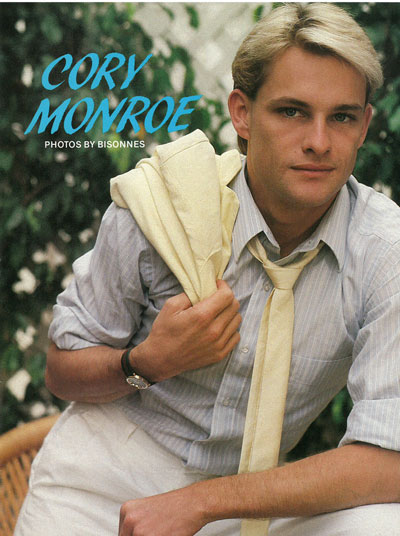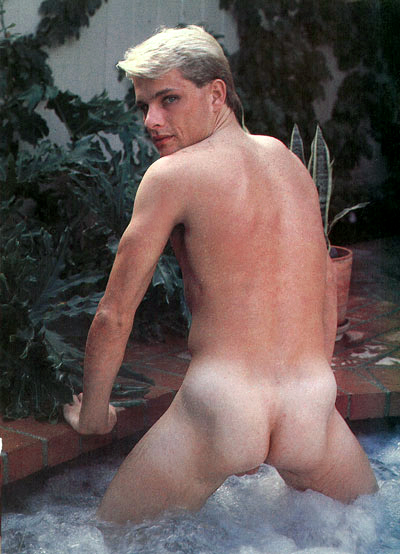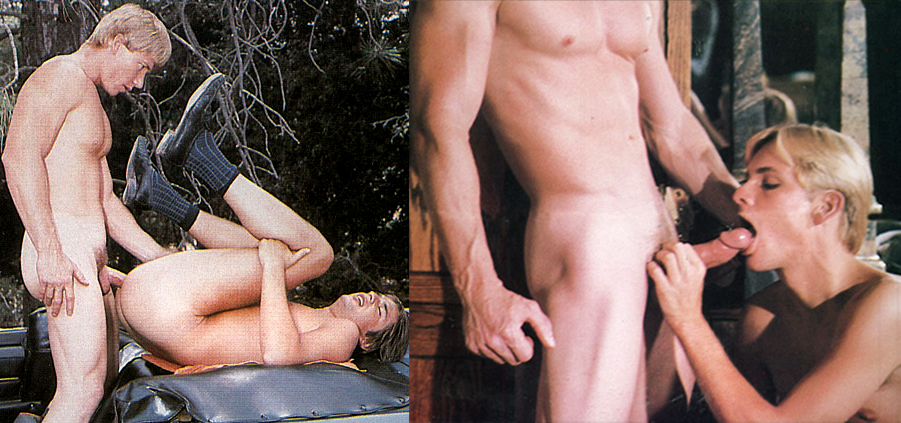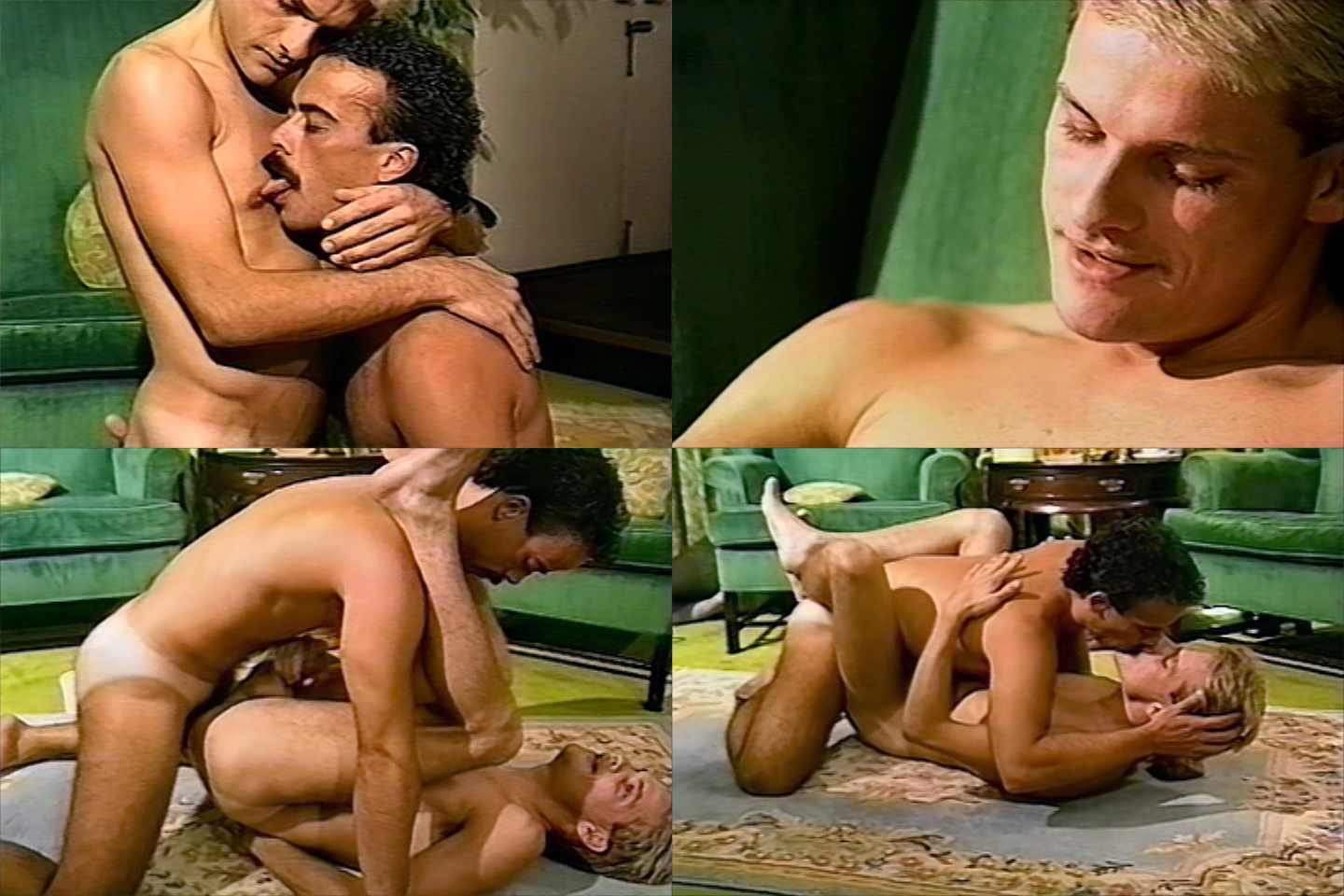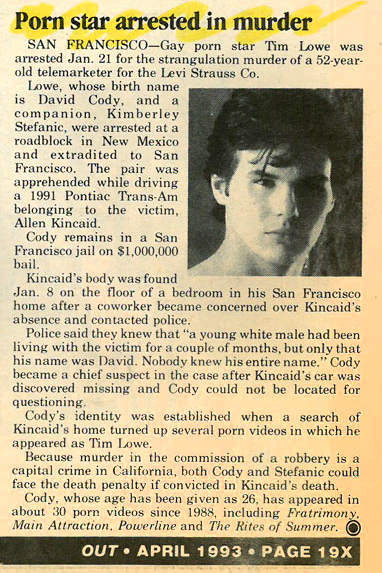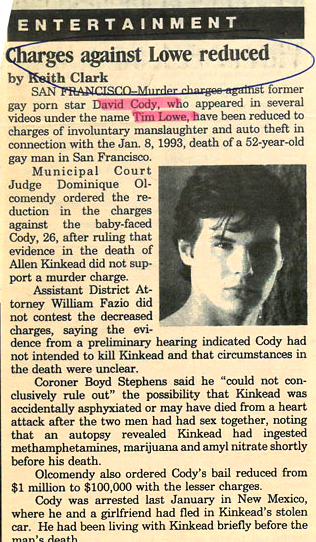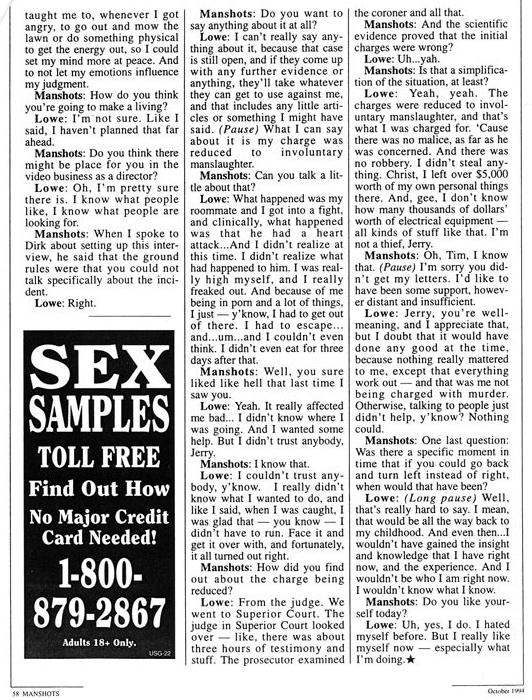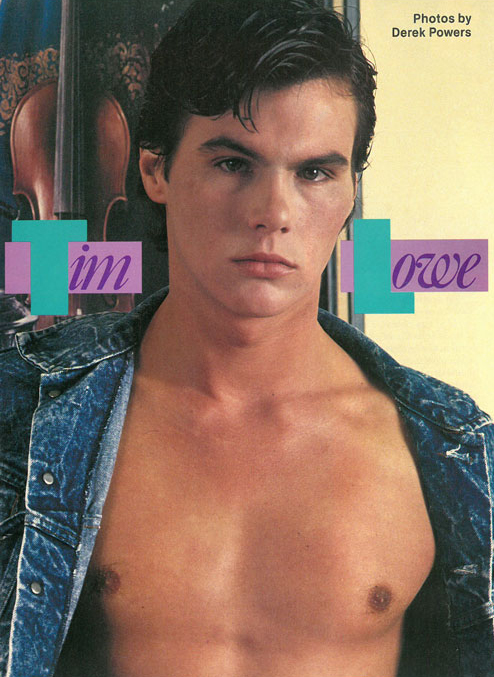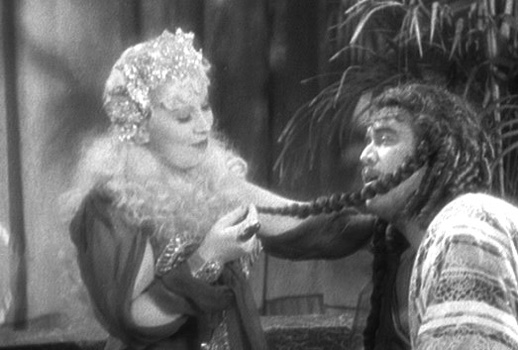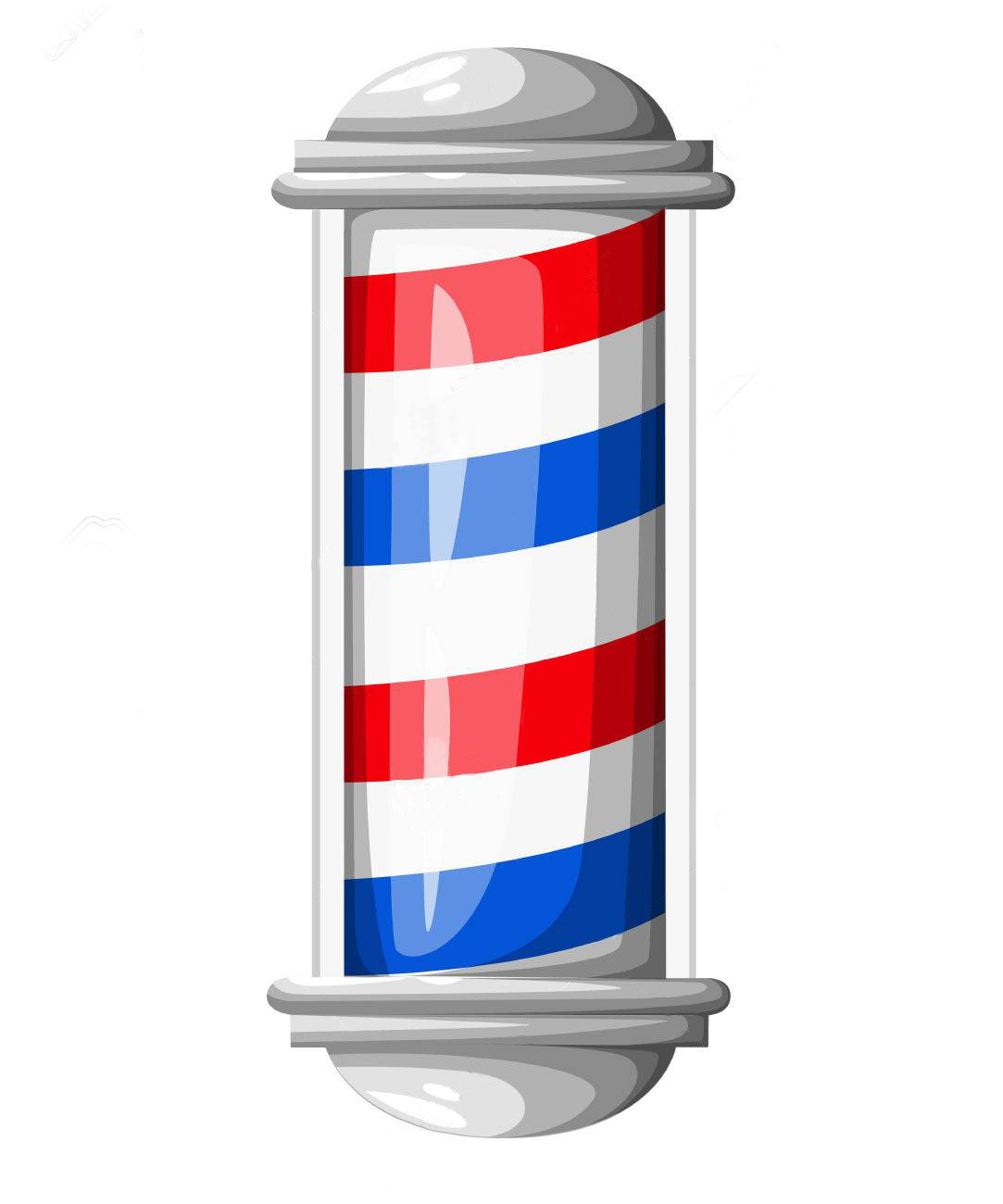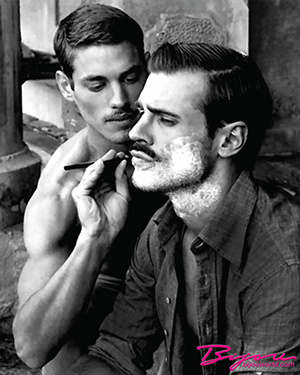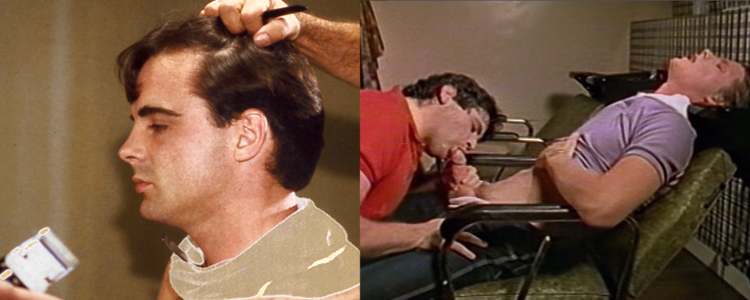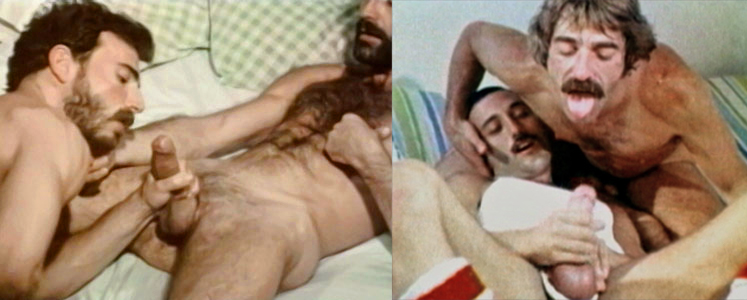posted by guest blogger Miriam Webster
 Bijou Theater exterior and upstairs map
Bijou Theater exterior and upstairs map I first went to the Bijou Theater in 2008. It was a snowy day that March. I was in my last month of being 21 – quite an eventful year. It was weeks after I met my first real girlfriend, who I would wind up being with five and a half years. At the beginning of my 21st year, I had my first kiss. (I was a very late bloomer.) Months later, I first had sex (in the bathroom of the longstanding goth club, Neo, another Chicago landmark that closed mere months before the Bijou Theater in 2015). Shortly afterwards, I began going to S/M events and getting curious about the sexual spaces in the city.
The snowy March evening in question, I attended one of Bijou's Wayward Sisters parties with a group of friends. These parties were a blast. They generally got good turn outs and lively crowds – mostly younger art students and predominantly women, though a big mix of folks were present, including Bijou regulars. (There were intentionally never any gender restrictions at the Bijou, unlike many other gay adult businesses. Bijou owner Steven Toushin welcomed all adults and his attitude was always, “No one should be left out; it shouldn't be an exclusive space.”)
At these parties, David Boyer from Chicago's leather bar, Touche, would hand out beers in the back garden and spank the recipients. People DJed in the theater area and danced on the stage and, upstairs, explored the space, cruised, had sex, talked to each other through glory holes. That night, I wound up in the sling in the dungeon, making out with two of the girls I'd shown up with, while some Bijou regulars stood around in the dark and jacked off, a few of our other friends peeping at this display through a window. I later went outside and saw my dude friends and some other guys standing in a circle on the balcony with their dicks whipped out, comparing them while deep in conversation.
 Bijou's upstairs
Bijou's upstairs About six months after attending this party, I wound up answering a Craigslist ad seeking an editor for a gay porn company; an ad so brief it was almost cryptic. When I went in for the interview, it was a very pleasant surprise to realize it was for Bijou and that, in addition to the theater, Bijou was also a vintage gay porn company. I was a filmmaker with a particular interest in '60s sexploitation films and LGBTQ film history and a burgeoning interest in '70s porn, so this was extremely up my alley. I very much wanted the job, even more after Steven discussed the company and its history and philosophy, so I was thrilled when I picked up the call confirming that I got it.
The Wayward Sisters events were still running when I got hired at the Bijou office and, in total, operated for around a year and a half. Steven recalls once showing up at a Wayward Sisters party with his partner and doing a flogging and fisting scene in the dungeon. As they played, party-goers wandered by and started gathering, their conversations soon growing silent as they watched intently. Afterwards, a group of young women came over to talk to his partner and pay compliments about the scene. I went to one or two more of these parties before they wound up being discontinued not long after the person who originally ran them moved to Europe.
But let's back up much further, well before my time.
 Wells Street, 1976, and '70s Bijou Theater ad
Wells Street, 1976, and '70s Bijou Theater ad The Bijou Theater opened in 1970 in Chicago's Old Town neighborhood on Wells Street, where it was in the proximity of several other gay and sexual businesses. The first film that played there was Richard Nixon's Checkers Speech, named after the Nixon dog. The next was a gay porn film. In 1980, it expanded to a second floor, with a maze of glory hole booths and a dungeon room. By then, it was open 24/7 and people partied there late into the night. Touche and other gay bars would bus folks over and the crowd from Carol's Speakeasy, located next door, regularly spilled into Bijou (sometimes for free through its back door) after hours. During these decades, the theater endured numerous police raids, obscenity busts, bomb threats, and more, but it kept running. In addition to porn films on Bijou's screen, these first few decades saw live performances on stage by many of the films' major stars, including Al Parker, Richard Locke, Lee Ryder, Peter Berlin, Jim Cassidy, and Casey Donovan (and Colt stars later on in the 2000s).
 Ad for live appearances by Peter Berlin at the Bijou Theater, April 1980
Ad for live appearances by Peter Berlin at the Bijou Theater, April 1980 From 2000 to 2002, Miss Tiger and her Erotic Cabaret, featuring the Bijou Boys, took to the Bijou's stage. Drag performer Miss Tiger's events were elaborately staged erotic revues featuring theatrical pieces, humor, musical numbers, strip shows, live sex acts, and more. One notable show incorporated a Gregorian chant playing as a man came out dressed as a priest and with four men dressed as choir boys. They all read from Bibles, then the choir boys took turns sucking the priest's dick on stage.
 Ads for Miss Tiger's Erotic Cabaret
Ads for Miss Tiger's Erotic Cabaret Not long after I began working at the office, a fellow employee asked me if I wanted to help out with one of the theater's strip shows. I wound up running lights and music for these each month. Another co-worker, Bryan, took over as host for a long while and he incorporated stand up comedy into the Nude Revues. We often made elaborate videos to feature during the intros and during intermission. Finally, Michael, who worked in the box office, took over hosting. He had a great rapport with the customers, which made for a comfortable flow. (At the final Nude Revue before the theater's closing in 2015, he ended the show by singing a poignant song, which brought tears to many an eye in the crowd.)
 Bijou Boys Nude Revue posters
Bijou Boys Nude Revue posters Bijou held a big 40th anniversary party in the first months of 2011. This was hosted by David Boyer, and the packed audience took in live music performances of classic gay porn theme songs accompanied by dancers (one of whom poured orange juice all over her naked body to a very noisy cover of the theme to Arthur Bressan Jr.'s 1984 film, Juice), videos about gay porn history and Bijou's history (both viewable at the bottom of the Bijou Theater page on our website), words from Steven Toushin, a two foot tall ejaculating dick cake (made by my girlfriend), and a strip show.

Bijou Theater 40th anniversary party photos
During the 2000s, more people were approaching Steven with interest in doing events at the theater, as the dynamic at the bars was changing. The first huge event to be staged there by organizers from outside the theater during my era in the 2010s was the release party for the vintage gay porn soundtracks of Patrick Cowley by Dark Entries Records on Valentine's Day of 2014. DJs played in the dungeon (which got crowded, hot, and sweaty) and others played downstairs on the stage while clips from the movies Cowley scored were shown on screen. This event illuminated some new possibilities for hosting parties in the space that were influential during the theater's final two years, during which we worked with many different organizers and artists.
Later that month, a friend of mine staged reading of an erotic play he'd co-written about Abraham's Lincoln alleged gay relationship. This event segued into a year or so when a friend in the same circle proposed doing monthly variety shows at the theater. I helped him run these and they were chaotic, sometimes thrilling, and often messy installments called Upstairs/Downstairs, featuring performance art, video art, experimental film, punk bands, noise musicians, installations, DJs, and stand up comedy. Some highlights: a performance featuring a corn cob strap-on covered in I Can't Believe It's Not Butter; legendary Chicago bands and performance artists taking to the stage and finding creative ways to utilize the space; a night when I had to mop milk, piss, and cum off the floor of the dungeon after the show; and a fake human sacrifice and haunted house.

Upstairs/Downstairs poster; performance by Chicago legends Ono and a "human sacrifce"
With these and following events, inspired by the broadly mixed crowd and dynamic use of the building seen in the Wayward Sisters and Patrick Cowley parties, we tried to find more opportunities for newcomers - across a range of ages and genders - to feel welcome in the theater, while also hopefully being an interesting change of pace for the customers who had called it home for decades. Finding this balance was tough and sometimes tense, but a worthwhile endeavor. Steven was interested in people trying new and different things at the theater and he gave them pretty much free reign in what they planned (basically unheard of), though he often suggested to organizers that one successful approach to the uniqueness of the Bijou was allowing things to unfold throughout the entire venue. The staff of the theater went above and beyond during the events in these final years, which often required a huge amount of extra work.
During this span of time, S+S Project hosted an exciting show highlighting the work of many talented local artists, including installations of artwork, video art screening in the theater, and performances on stage and upstairs (featuring nudity, lard, and balloons). Afterwards, we hung around late into the night in the dungeon while DJs kept playing.
A couple of large queer dance parties were thrown by Chances Dances – one for Halloween and one for Valentine's Day. These included DJs, performers, vintage lesbian porn, and more.
The Men's Room parties also came to the Bijou during this time and hosted several events. These quickly turned massive, culminating in a sprawlingly large and debaucherous one during the IML weekend of the theater's final year. These nights featured music on both levels and erotic performance art (once incorporating fireplay and once featuring piercing play; in the latter scenario, a disco ball was strung up to the performer's cock and balls and when the needles pierced into his chest were tugged out, blood spilled down his body and onto the disco ball).
 Chances Dances and Men's Room posters
Chances Dances and Men's Room posters In the same era, we held an intimate memorial service in the theater, hosted by the folks I went to my initial Wayward Sisters party with, for their friend Wiley, a long-time Bijou regular who loved the place and had recently died. His friends shared memories and screened videos they'd made with Wiley in the theater to a small gathering that also included theater attendees and employees who'd known him.
In the fall of 2015, we got the terrible news that the Bijou was being forced to close, as the result of a legal battle with its landlord. We quickly scheduled a series of events for its final week, David Boyer running several great Touche parties and classic porn films playing 24/7 on the screen. We set up one last party on the theater's final night in operation, and I welcomed anyone who was interested in participating to contact me. We had an overwhelming response.
The night saw wild performance art in the dungeon, live music, beautiful dance performances on stage, DJs doing disco sets in the dungeon, classic porn clips in the theater, erotic videos by local artists screening upstairs, a photobooth and roaming photos by GlitterGuts (all of which you can see here), and I even, in one gorgeous moment, walked by to see a person sawing out a section of the glory hole booths while fucking someone. (Several panels were removed for posterity, Steven keeping some and the person who removed them continuing to this day to install pieces of the Bijou in art shows and other spaces around the country.)
 Forced Into Feminity and more from the final party by GlitterGuts
Forced Into Feminity and more from the final party by GlitterGuts Many friends and strangers talked and fucked. Intergenerational conversations were happening throughout the night, as many people from all different points in the theater's history (and newcomers) showed up. I finally managed to have sex in the theater (in one of the booths, with my then-girlfriend). People were so appreciative of the space, each other, and the history, and being able to be free to do whatever they wanted there, engaging enthusiastically in the way I'd always hoped for. A few asked if they could keep the faded vintage porn film posters on the wall and we took these down and gave them out. One DJ (who'd been involved in putting on several previous events) played an entire new score to the Frank Ross classic Made in the Shade in the theater, which thoughtfully included a sample of the lead performer's final line: “I know I'll have many other homes, but never a place like this.”
 Final scene from Made in the Shade (1985)
Final scene from Made in the Shade (1985) This party ran until the next morning. As the remaining stragglers lingered, I found myself alone in the dungeon as Donna Summers' Last Dance came on the playlist, and I danced and cried.
 Party remnants
Party remnants The rest of that day is a blur. I may have napped in the office or not slept at all. A few of us, including Steven, David, Bijou's custodian Shrodney, and I, had to take down the screen and clear out any remaining equipment by the end of the night before the property was turned over to its new owners. We climbed ladders to disconnect lights from lighting rigs, cleared out the projection booth, and packed everything up. Shrodney and I made a final pass through the upstairs, which was a wreck from the party (we didn't have to clean up after it for once), and removed lightbulbs and signage and took photos of the graffiti on the remaining glory hole booths. We headed down the spiral staircase for the last time and shut the door to that room, placing a peacock feather we found, left over from one of the previous night's performers, on top of the door frame.
 Screen removal, peacock feather, graffiti: final photos taken in the Bijou
Screen removal, peacock feather, graffiti: final photos taken in the Bijou We all finished our work and headed out, locking the front door for the first time in 35 years. Steven had to install a lock for this, because the front door didn't even have a functioning one – the theater had been open every day all those years, even through fires and bomb threats, since it became a 24/7 establishment in 1980.
Weeks later, a large group of my friends, moved by their experiences there, held a beautiful memorial service for the Bijou Theater in their own space, which was deeply in the spirit of the venue. I've seen its spirit continue on in gatherings of friends, sexual spaces, and porn screenings since, and hope to continue to catch glimpses of it as the years pass.



